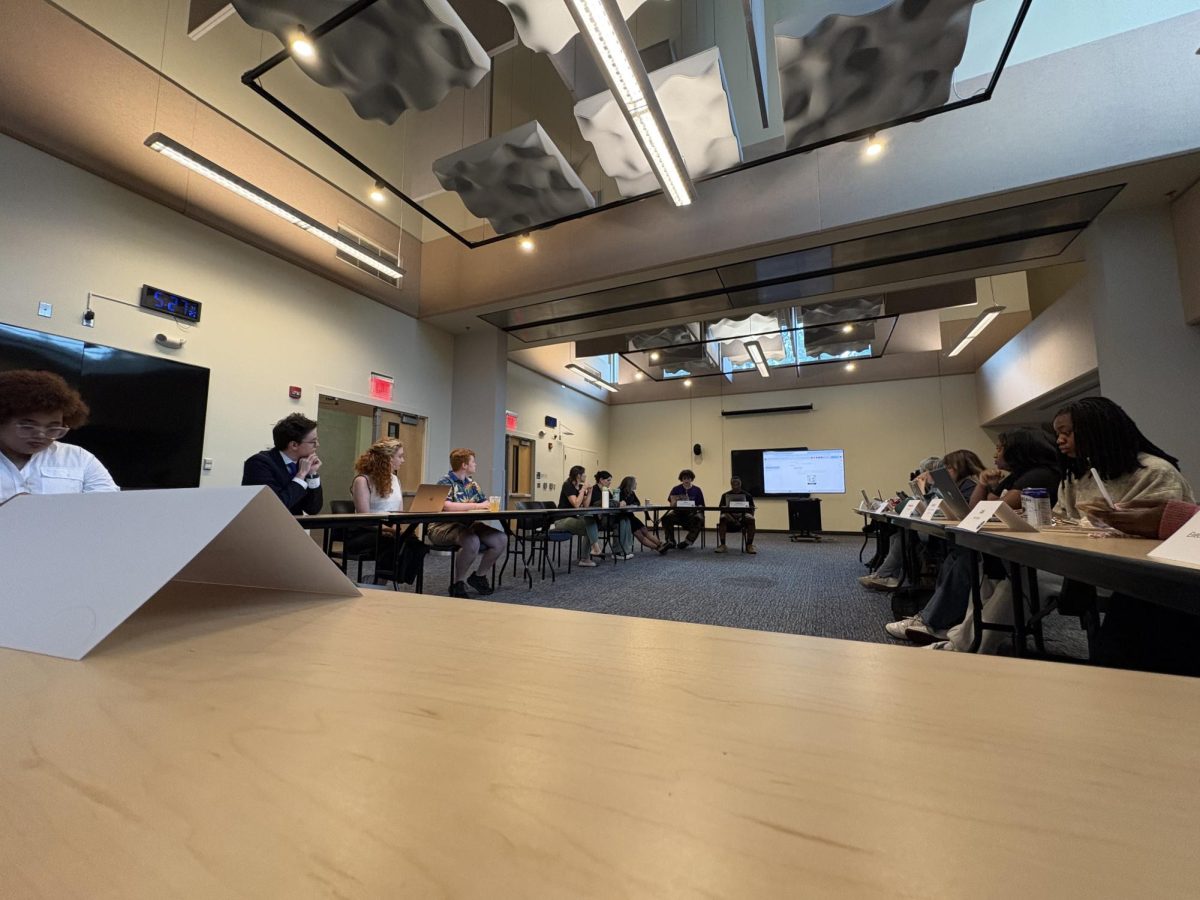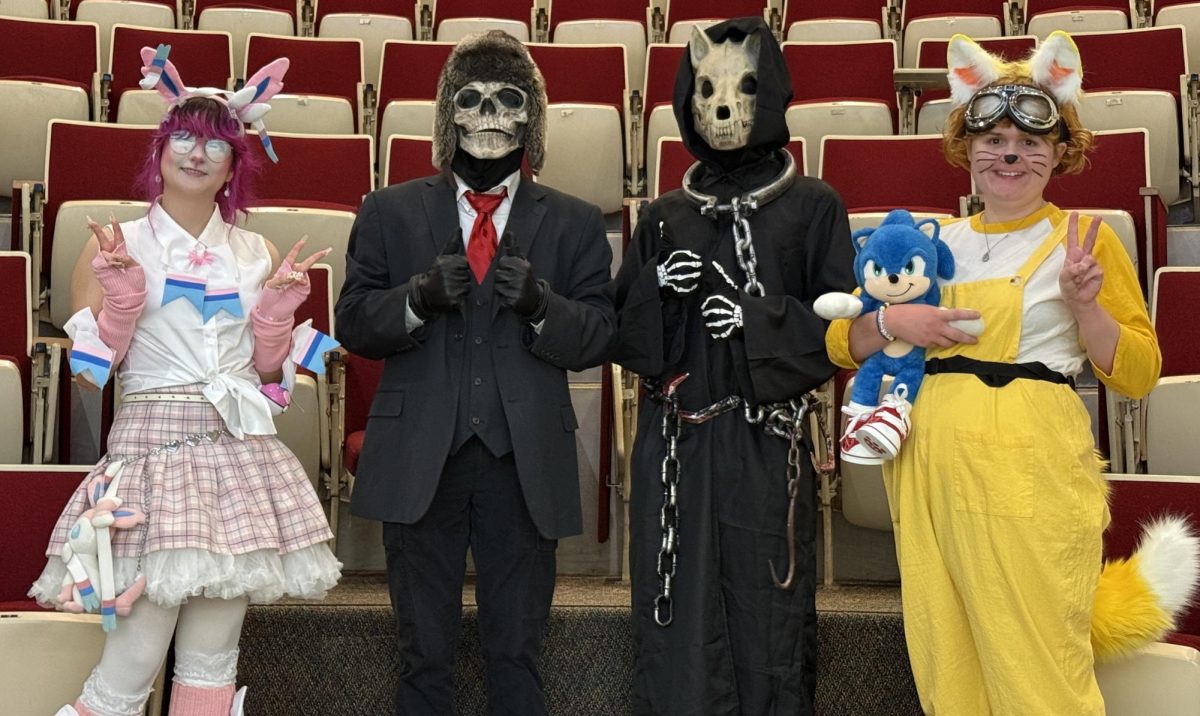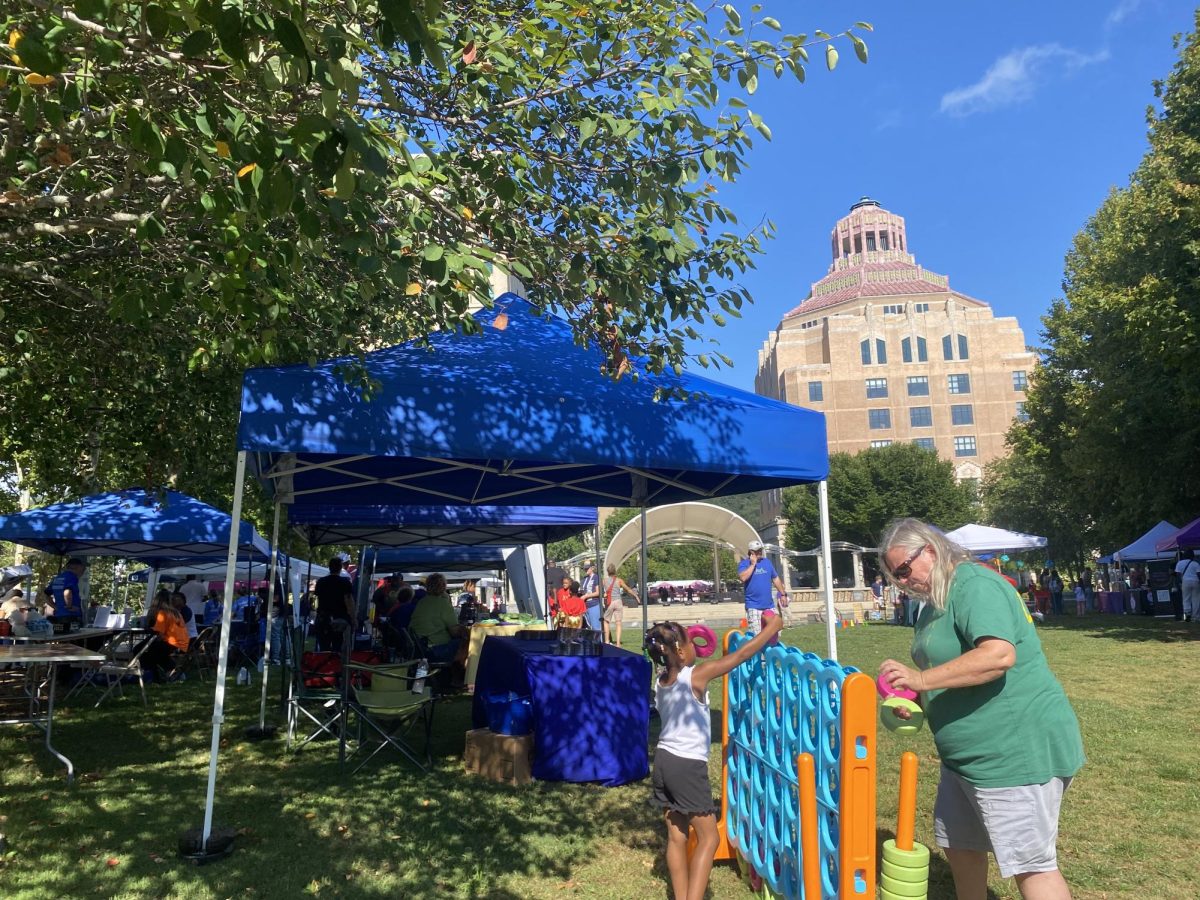Was your 8 a.m. Calculus I class a rude awakening to all five senses? Did no meal exchange coffee at Roasted slightly crush your soul? Was Thursday’s downpour your umpteenth reason to bed-rot through your Friday classes, because those don’t really count…right? And don’t lie to me, those Sambas hurt your feet more than you’re letting on. Or telling your mom.
We’re college students, complaining is the side to our eggs at Brown breakfast, and the adjustment back to academics after summer is steeper than the HIKE up to Owen Hall. But with the first week done and dusted, I think it’s important for us to reflect on how lucky we are to be furthering our education, a privilege not every high school student in Asheville can look forward to.
I attended the United Way 2025 Block Party Friday, Aug. 22, in Pack Square, and was both delighted and disheartened to see giddy school kids – faces smeared with ice cream and Hershey’s – darting between colorful tents emblazoned with helplines for families of Asheville and Buncombe County struggling financially, medically and educationally.
“The Block Party is basically an opportunity to bring all the different kinds of nonprofit and service providers into one space to have a bit of a get back to school, start off the year right, event,” said Elisabeth Bocklet, senior director of marketing and communications for United Way of Asheville and Buncombe County.
Upon arrival I made my way toward the row of tents, walking across Roger McGuire Green to the sound of “Just a Girl” performed by Detective Blind and the smell of cheese burgers with an aftertaste of Nutella crepes. I stopped by a cluster of friendly faces – posted out of earshot of the Reynolds High School drum circle – and spoke to Wendy Brooks, community health worker for SPARC Foundation, about the struggles families in Asheville and Buncombe County face accessing higher education.
The SPARC Foundation encourages higher education access for locals through mentoring, life coaching and navigation of college admissions, according to Brooks.
“A lot of people don’t have the finances to pay for college classes, and don’t know they can apply for scholarships or financial aid through their community,” Brooks said. “Sometimes they want to go back, but they never finished high school, or they don’t have the confidence to go back to school.”
Brooks also said Hurricane Helene had a drastic impact across all levels of education in Asheville.
“Kids lost a long period of education after the storm. And then on top of that, some of these kids were very traumatized, so many have PTSD,” Brooks said.
Speaking with Brooks really made me reflect on how natural and easy I found starting UNC Asheville. I spent my first week filling my fridge with overpriced groceries and eagerly tearing the tags off athletic gear without so much as a glance at the price, under the impression collegiate athletic gear was a necessity, not a luxury.
The loud clang of a steel drum brought me back to reality. I made a diagonal across the lawn, being careful to avoid the strewn candy wrappers and quick reflexes of United Way volunteers on litter picking duty. Here I met Ashley Allen, co-executive director of Read to Succeed, a local literacy nonprofit, who enlightened me on the race based opportunity gap in student literacy across Asheville.
“The highest concentrations of poverty – the Housing Authority of the City of Asheville properties – also have the highest concentration of Black and brown people, such as Hillcrest and Pisgah View Apartments,” Allen said.
Education access in Hillcrest could also be limited by the recent highway initiative to build right in the middle of the housing development, according to Allen, as it will displace families who cannot afford to live elsewhere.
Allen also said social narratives play a huge role in limiting access to further education.
“I worked in Asheville City Schools for 10 years. The research shows that 60% of students have difficulties reading. If you have this narrative that Black students should be struggling to read, you begin to associate your Blackness with a lack of education,” Allen said. “Depending on what the media is representing and your home experience, these narratives can get compounded.”
Asheville City Schools has one of the largest race-based opportunity gaps in the U.S., according to the North Carolina Department of Public Instruction. Additionally, white students in third to eighth grade were 2.2 times more likely to score “career and college ready” on final exams than Black students in the 2022-23 school year, according to the Southern Coalition for Social Justice. Both figures were published in an Equity in Edu report by Read to Succeed.
I walked away from Pack Square toward the bus station with my head spinning. I started checking my own educational privilege with each step, and made a mental reminder to not complain about my early alarm, or a surprise pop quiz next Monday morning.




















